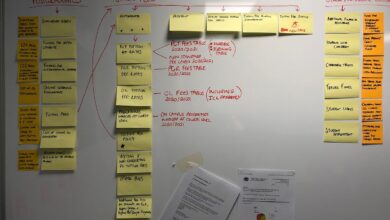How Car Insurance Can Protect Your Finances and Peace of Mind

Car insurance is an essential aspect of owning and operating a vehicle. Not only does it fulfill legal requirements, but it also offers financial protection and peace of mind for car owners. This article delves into how car insurance can safeguard your finances and provide a sense of security, ensuring that unexpected events on the road do not lead to undue stress or financial hardship.
Key Takeaways
- Car insurance provides peace of mind, allowing drivers to focus on the road without the worry of financial repercussions from accidents or theft.
- Financial protection is a core benefit of car insurance, covering the costs of repairs, replacement, and potential legal fees after an incident.
- Having car insurance is a legal requirement in many regions, ensuring compliance and avoiding penalties while also offering coverage for liability and damages.
- Choosing the right car insurance policy involves assessing individual needs, understanding coverage options, and considering factors like location and lifestyle.
- Car insurance can offer reassurance not only to the policyholder but also to passengers and other road users, contributing to a safer driving environment.
Understanding the Scope of Car Insurance Coverage

Protection Against Theft and Vandalism
Comprehensive car insurance is a critical safeguard for drivers, offering protection against theft and vandalism. This coverage is essential, as it ensures that you’re not financially burdened should your vehicle fall victim to criminal acts. Whether it’s a broken window, defaced paintwork, or the theft of the car itself, comprehensive policies provide the necessary support to handle such incidents.
- Theft of the vehicle: Coverage includes reimbursement for the stolen car, up to the policy limit.
- Vandalism: Repair costs for damages due to malicious mischief are covered.
- Personal belongings: Some policies may not cover items inside the car; it’s crucial to check your policy details.
The process of filing a claim for vandalism or theft is straightforward, ensuring that you can quickly recover from the incident and restore your vehicle to its pre-loss condition. It’s important to report any such occurrences promptly to facilitate the claims process and receive timely assistance.
Coverage for Accidents and Damages
Car insurance plays a crucial role in protecting you financially in the event of an accident. Collision coverage ensures that damages to your vehicle after an accident are taken care of, regardless of who is at fault. This can be particularly beneficial if you are deemed responsible for the incident.
Comprehensive coverage extends beyond accidents, safeguarding your vehicle against non-collision events such as theft, vandalism, and natural disasters. Here’s a quick overview of what these policies typically cover:
- Collision Policy: Repairs from accidents with other vehicles.
- Comprehensive Coverage: Damages from theft, vandalism, natural disasters, and other non-collision incidents.
Having the right coverage means not having to worry about the financial burden of repairs or replacement of your vehicle after unforeseen events. It’s not just about repairing dents and scratches; it’s about ensuring that you’re not left stranded with a hefty bill or a compromised vehicle.
Liability and Legal Protection
Car insurance is not just about repairing your vehicle after an accident—it’s also about protecting you from the financial repercussions of causing damage to others. Liability coverage is essential for any driver, as it covers the costs associated with injuries and damages you may be responsible for in the event of an accident. This includes medical bills, repair costs for damaged property, and even legal fees should you face a lawsuit.
Liability insurance is a legal requirement in many areas, and driving without it can lead to severe penalties, including fines and suspension of your driver’s license.
It’s important to understand that while liability insurance provides a significant level of protection, it does not cover your own injuries or vehicle damage. Here’s a breakdown of the two main types of liability coverage:
- Bodily Injury Liability: Covers medical expenses, lost wages, and legal fees for injuries you cause to others.
- Property Damage Liability: Pays for repairs or replacement of other people’s property that you damage.
Choosing the right amount of coverage is crucial. If the costs exceed your policy limits, your personal assets could be at risk to cover the remainder. Therefore, it’s advisable to consider purchasing more than the minimum required amount to ensure comprehensive protection.
The Financial Benefits of Car Insurance

Avoiding High Costs of Repairs and Replacement
One of the most tangible benefits of car insurance is the ability to avoid the high costs associated with car repairs and replacement. Standard auto insurance policies typically don’t cover repairs related to normal wear and tear or mechanical failures, but they do provide coverage for damages incurred during accidents or due to unforeseen events like theft or natural disasters.
- Opt for a car with good safety ratings to potentially save on insurance.
- Consider paying small claims out-of-pocket to avoid increased premiums.
- Drive safely to maintain your No Claims Bonus (NCB), which can significantly reduce your insurance costs over time.
Having insurance means you won’t have to deal with the stress of negotiating repairs and costs after an accident. Your insurance company handles these negotiations, allowing you to focus on what matters most.
When evaluating whether to include comprehensive and collision coverage in your policy, consider your financial resilience. If an unexpected car repair or replacement would strain your finances, the peace of mind that comes with comprehensive coverage may be invaluable. Conversely, if you have a robust emergency fund, you might opt to self-insure for these potential costs and save on premiums.
Managing Expenses After an Accident
After an accident, the financial implications can be as distressing as the event itself. Car insurance serves as a financial safety net, ensuring that you’re not left to shoulder the burden of repair costs, medical bills, or legal fees alone. It’s crucial to understand the role of your coverage in managing these expenses.
- UM/UIM coverage and collision coverage are both essential after a hit-and-run accident. While UM/UIM coverage typically has a lower deductible, it may also cover rental car costs during repairs.
- For minor damages, consider whether paying out-of-pocket is more economical in the long run, as it can preserve your No Claims Bonus (NCB) and prevent future premium increases.
- Always drive safely; it’s the most effective strategy to protect your NCB and avoid accidents, which in turn keeps insurance costs down.
In the aftermath of an accident, proactive communication with your insurance provider is key. Follow up regularly to ensure your claim is processed efficiently and any medical treatments or expenses are recorded meticulously.
Legal Requirement and Financial Compliance
In the realm of driving, compliance with legal requirements is not just about adhering to rules; it’s about contributing to a safer driving environment. In many jurisdictions, having at least a minimum level of car insurance is a legal mandate. This ensures that all road users are protected from the financial repercussions of accidents.
By meeting these legal requirements, drivers uphold their responsibility towards other road users and the community at large.
For those financing or leasing vehicles, full coverage insurance is often a condition set by lenders or leasing companies. They aim to safeguard their investment, and failure to maintain such insurance can lead to severe consequences, including repossession of the vehicle.
Understanding and adhering to these legal and financial obligations not only helps avoid penalties but also fortifies your financial well-being in the event of unforeseen incidents on the road.





